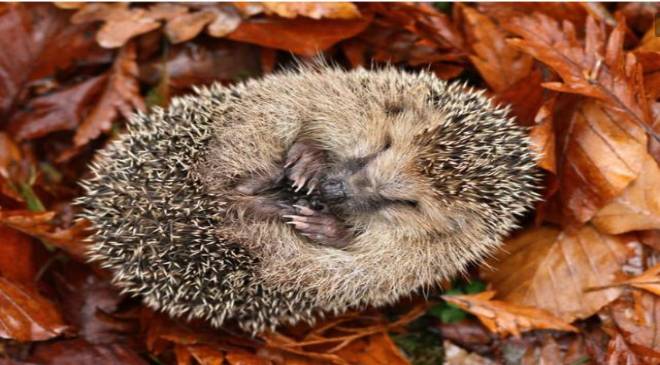Researchers in southern China say they have identified a potential obstacle that could prevent humans from being put into a state of hibernation.
In the world’s first cell-level hypothermia experiment on primates, the team activated specific neurons in the brains of the monkeys that triggered just a slight drop in body temperature and a strong defensive response against the cold.
Similar experiments on mice and rats in previous studies have resulted in a decrease in body temperature of about 10 degrees Celsius.
Do you have questions about the biggest topics and trends from around the world? Get the answers with SCMP Knowledge, our new platform of curated content with explainers, FAQs, analyses and infographics brought to you by our award-winning team.
But the monkeys cooled down by just 1 degree or so, neuroscientist Dai Ji and his team from the Shenzhen Institute of Advanced Technology wrote in peer-reviewed journal The Innovation on Monday.
Meanwhile, the monkeys kept moving around, their hearts were beating much faster and they were shivering – all in an effort to combat the falling body temperature.
“Our study showed that if humans are to realise artificial hibernation, a primary challenge would be to suppress our cold defence mechanism,” Dai said in an interview on Tuesday.
Hibernation enables mammals such as bears and rodents to survive adverse weather conditions or a lack of food.
During this deep sleep state, their metabolism is at a minimum level and their physiology changes. Their body temperature drops, some organs shut down, the heart barely beats, while muscles and bones enter a resting state but maintain strength.
The idea of inducing hibernation in humans has long captured the imagination of science fiction fans – from the Grizzelas in the Star Trek movies to the passengers travelling to Jupiter in 2001: A Space Odyssey. In reality, research into hibernation is not just for space travellers – it could also benefit people who are waiting for organ transplants or facing aggressive cancers.
“There has been much speculation about why many mammals hibernate but humans don’t,” Dai said. “Since previous studies have focused on rodents, we wanted to try an animal model that’s more similar to human beings in body size and structure.”
The researchers used three macaques in their study – two as experimental subjects and one as control. With a technique known as chemogenetic activation, they turned on neurons in the so-called preoptic area – a nucleus deep down in the ventral part of the monkey brain.
As a result, the body temperature of the two monkeys dropped by about 0.4-0.5 degrees, but they also began to move around much more vigorously than the controlled one. The researchers restricted the monkeys’ movements, which led to a further decrease of 0.7-0.9 degrees in their body temperature.
Unlike the mice, which had slow heart rates and became immobile after such neural manipulation, the monkeys had a dramatic increase in heart rate – it went up by 40 to 60 beats per minute.
“We were also really surprised to see the high level of [the enzyme] creatine kinase in their blood samples, which soars only after strenuous exercise,” Dai said.
Later, the team found a general activation in the entire monkey brain using MRI scans. “One possible explanation is that monkeys have an innate cold defence mechanism which is missing in rodents, to perceive temperature changes with high accuracy of less than 1 degree Celsius,” he said.
Dai and his team now plan to look at how lowered body temperature might affect the cognitive abilities of primates. “Our next experiments will test working memory and other cognitive indicators in monkeys,” he said. “This is important because while astronauts physically hibernate as they fly into deep space, their brain still needs to be working.”
Dai said it would help if scientists could find the “hibernation gene”. One theory is that hibernation is encoded in human genes, but that the life-saving skill was lost because it was no longer needed. So if it could be found, and if scientists could work out how to trigger it, then this ability could potentially be restored.
“But there are still so many basic things we simply don’t understand,” Dai said. “For instance, we have no idea how bears wake up when their hibernation ends, and how long it would be safe to put someone in hibernation before we wake them up.”























